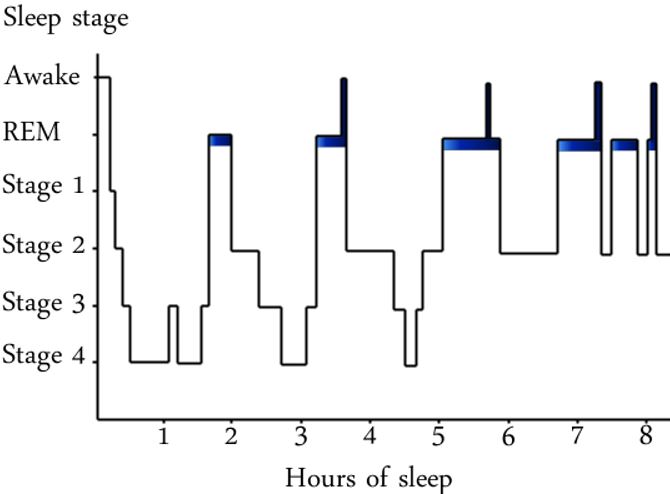The Main Principles Of paradoxical sleep ps: Topics by Science.gov

Some Known Incorrect Statements About Synonyms and Antonyms for paradoxical-sleep - Antonym.com

The relative quantity of Rapid Eye Movement varies substantially with age. A newborn baby spends more than 80% of overall bedtime in REM. Rapid Eye Movement sleep generally occupies 2025% of total sleep in adult humans: about 90120 minutes of a night's sleep. The first Rapid Eye Movement episode occurs about 70 minutes after dropping off to sleep.

The dual effect of paradoxical sleep deprivation on murine immune functions - ScienceDirect

Effect of paradoxical sleep deprivation on oxidative stress parameters: - Download Scientific Diagram
(The increased Rapid Eye Movement later in the night is connected with the circadian rhythm and takes place even in individuals who didn't oversleep the first part of the night.) In the weeks after a human baby is born, as its nerve system grows, neural patterns in sleep start to show a rhythm of REM and non-REM sleep.
The percentage of Rapid Eye Movement then reduces considerably in youth. Older people tend to sleep less general but sleep in REM for about the very same absolute time, and therefore invest a greater proportion of sleep in REM. Quick eye motion sleep can be subclassified into tonic and phasic modes. Keep Checking Back Here is defined by theta rhythms in the brain; phasic REM is characterized by PGO waves and real "fast" eye movements.
The 45-Second Trick For The paradox of insomnia and why you can't fall asleep
Deprivation effects [modify] Selective REMS deprivation triggers a considerable boost in the number of efforts to go into Rapid Eye Movement stage while asleep. On recovery nights, a person will usually transfer to phase 3 and REM sleep more rapidly and experience a Rapid Eye Movement rebound, which refers to an increase in the time spent in Rapid Eye Movement phase over normal levels.

PLOS ONE: A Very Large Number of GABAergic Neurons Are Activated in the Tuberal Hypothalamus during Paradoxical (REM) Sleep Hypersomnia
Nevertheless, the "rebound" Rapid Eye Movement typically does not last fully as long as the approximated length of the missed REM periods. After the deprivation is complete, mild psychological disturbances, such as stress and anxiety, irritation, hallucinations, and difficulty focusing might develop and cravings may increase. There are likewise positive repercussions of Rapid Eye Movement deprivation.
